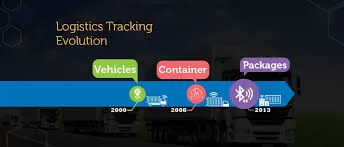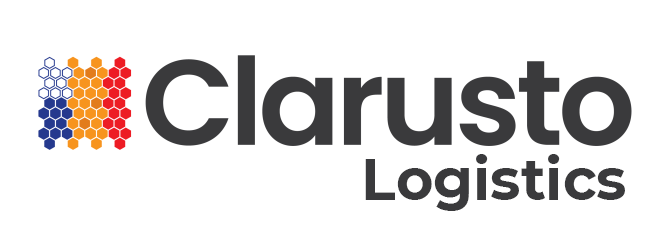INTRO
In the rapidly evolving world of logistics and supply chain management, technology is playing an increasingly pivotal role. One of the most transformative technologies reshaping the landscape of cargo tracking systems is Machine Learning. With its ability to learn from vast amounts of data, make predictions, and provide actionable insights, machine learning is revolutionizing how goods are tracked, managed, and delivered globally. As a result, businesses are experiencing improved efficiency, reduced costs, and more accurate delivery timelines.
The Evolution of Cargo Tracking Systems

Before delving into how technology is transforming cargo tracking, it’s essential to understand how these systems have evolved. Historically, tracking shipments involved manual data entry, phone calls, and paper trails, leading to inefficiencies and delays. Over time, systems improved with the advent of RFID technology, GPS tracking, and real-time monitoring. However, despite these advancements, there were still gaps in predicting delays, optimizing routes, and managing logistics, leaving room for further innovation. Advanced analytics has stepped in to address these challenges, providing powerful tools for predictive analytics, route optimization, and real-time decision-making in cargo tracking.
Enter Machine Learning (ML) – a subset of artificial intelligence (AI) that uses algorithms to analyze large datasets, recognize patterns, and make predictions. Unlike traditional systems that rely on pre-programmed instructions, machine learning systems can learn from the data they process, continually improving their accuracy and performance.
How Machine Learning Enhances Cargo Tracking
1. Predictive Analytics for Delays and Disruptions
One of the most significant challenges in cargo tracking is predicting delays due to factors like weather conditions, traffic, port congestion, or unforeseen circumstances such as natural disasters. Traditional systems often react to these issues after they have occurred. However, advanced analytics can analyze historical and real-time data to predict potential disruptions before they happen. For example, by examining patterns in previous deliveries, these systems can anticipate how weather conditions might affect a particular route, allowing businesses to make proactive adjustments. With these technologies, companies can improve forecasting accuracy and minimize delays by making data-driven decisions based on predictive insights.
By predicting these delays, logistics companies can reroute shipments, adjust schedules, or notify customers ahead of time, enhancing overall supply chain reliability.
2. Route Optimization
Another critical area where advanced analytics is making a substantial impact is route optimization. Logistics companies face constant pressure to deliver goods quickly and cost-effectively. Analytics algorithms can analyze various factors, such as traffic conditions, fuel consumption, and weather patterns, to suggest the most efficient delivery routes. This not only speeds up delivery times but also reduces fuel costs and lowers carbon emissions.
In addition, machine learning systems can continually update routes in real time, adjusting for changing conditions. For example, if a major highway suddenly becomes congested, the system can reroute trucks automatically, ensuring minimal delay.
3. Enhancing Fleet Management
Fleet management is a crucial aspect of cargo tracking, involving the monitoring and maintenance of vehicles that transport goods. Machine learning can improve fleet management by predicting when a vehicle might need maintenance based on its performance history, fuel consumption, and wear-and-tear patterns. This approach, known as predictive maintenance, helps prevent costly breakdowns, reduces downtime, and ensures that shipments are delivered on time.
By analyzing data from onboard sensors, machine learning algorithms can also provide insights into driver behavior, such as excessive braking or speeding, enabling logistics companies to improve safety and reduce fuel consumption.
4. Real-Time Monitoring and Decision-Making
One of the most notable benefits of machine learning in cargo tracking is its ability to process vast amounts of data in real time. This allows logistics companies to monitor shipments more accurately and make informed decisions faster. For instance, machine learning can analyze sensor data from shipping containers, tracking temperature, humidity, and vibration to ensure that goods are transported under optimal conditions. If any irregularities are detected, such as a temperature spike that could spoil perishable goods, the system can send an alert to the logistics team to take corrective action.
5. Fraud Detection and Risk Management
Cargo theft and tampering remain significant challenges for the logistics industry. Machine learning can help address these issues by detecting anomalies in shipment data. For example, if a shipping container deviates from its expected route or a sensor detects unauthorized access, machine learning algorithms can flag these irregularities for further investigation. Over time, the system learns from previous incidents, improving its ability to detect fraudulent activities.
Moreover, machine learning can be integrated with blockchain technology, ensuring that every step of the shipment process is recorded securely and transparently. This not only improves accountability but also enhances trust between businesses and their customers.
The Future of Cargo Tracking with Machine Learning
As machine learning continues to evolve, its impact on cargo tracking systems will only grow. We can expect even more sophisticated predictive models, real-time data processing capabilities, and integration with other cutting-edge technologies like the Internet of Things (IoT) and blockchain.
For businesses in the logistics sector, investing in machine learning solutions is no longer a luxury but a necessity. By harnessing the power of machine learning, companies can stay ahead of the competition, optimize their operations, and deliver a superior customer experience.
Key Benefits of Machine Learning in Cargo Tracking Systems:
- Increased accuracy: Machine learning improves prediction accuracy for delivery times and potential delays.
- Cost reduction: Optimized routes and predictive maintenance lower operational costs.
- Enhanced security: Fraud detection systems using machine learning help mitigate risks.
- Improved customer satisfaction: Real-time updates and better prediction of delays lead to happier customers.
Conclusion
The transformative power of machine learning is undeniable, especially in its application to cargo tracking systems. From predictive analytics and route optimization to real-time monitoring and fraud detection, machine learning is revolutionizing how goods are tracked and delivered across the globe. As logistics companies continue to adopt this technology, the benefits will become even more apparent, leading to a more efficient, cost-effective, and reliable global supply chain.

